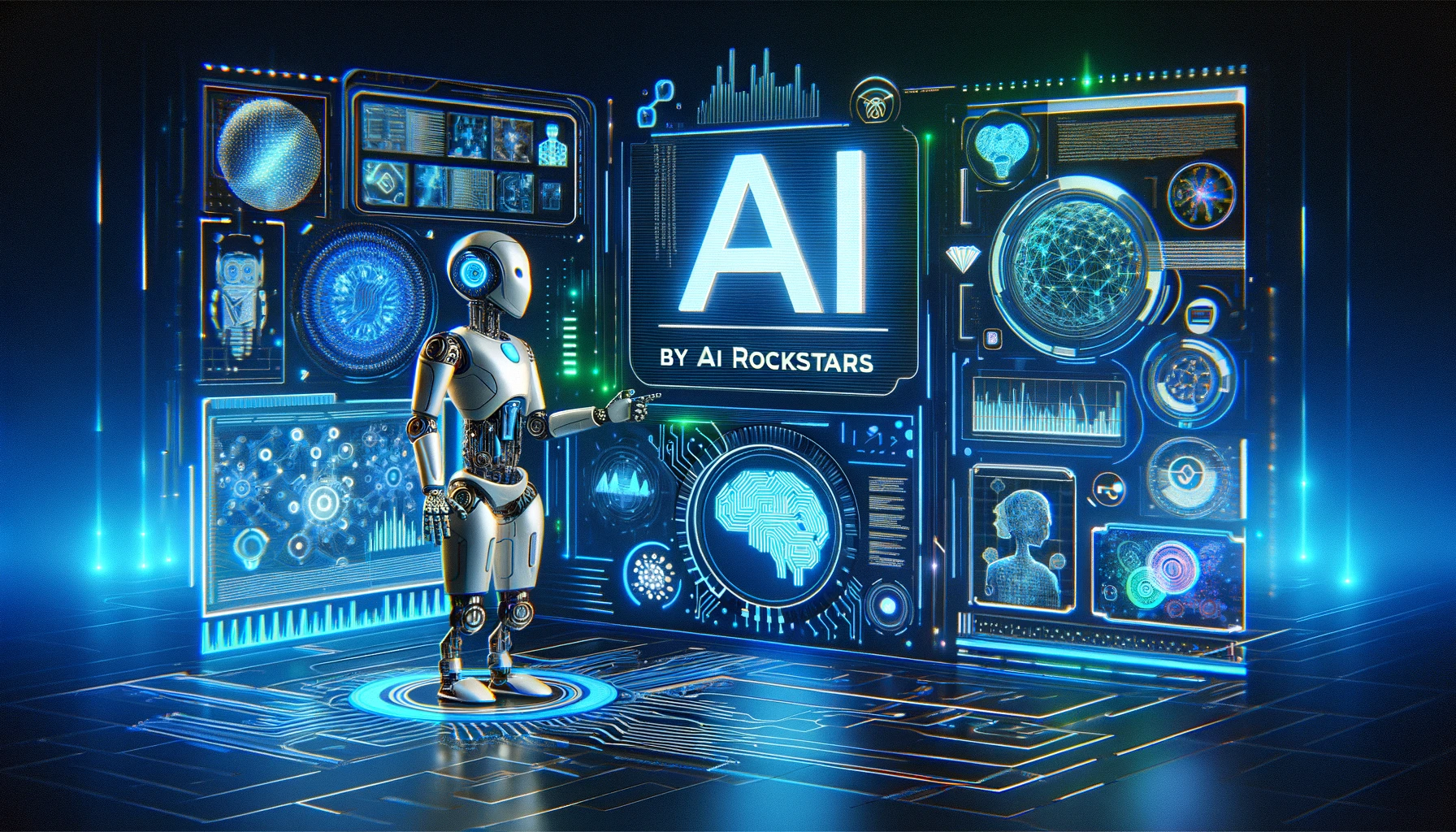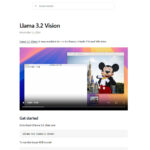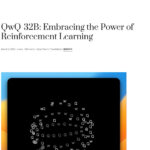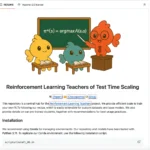This week’s highlights: Meta develops self-rewarding language models that could revolutionize AI. WHO defines new AI standards in medicine; Google and OpenAI lead in AI innovations.
Meta’s revolutionary, self-rewarding language models: a paradigm shift in AI development
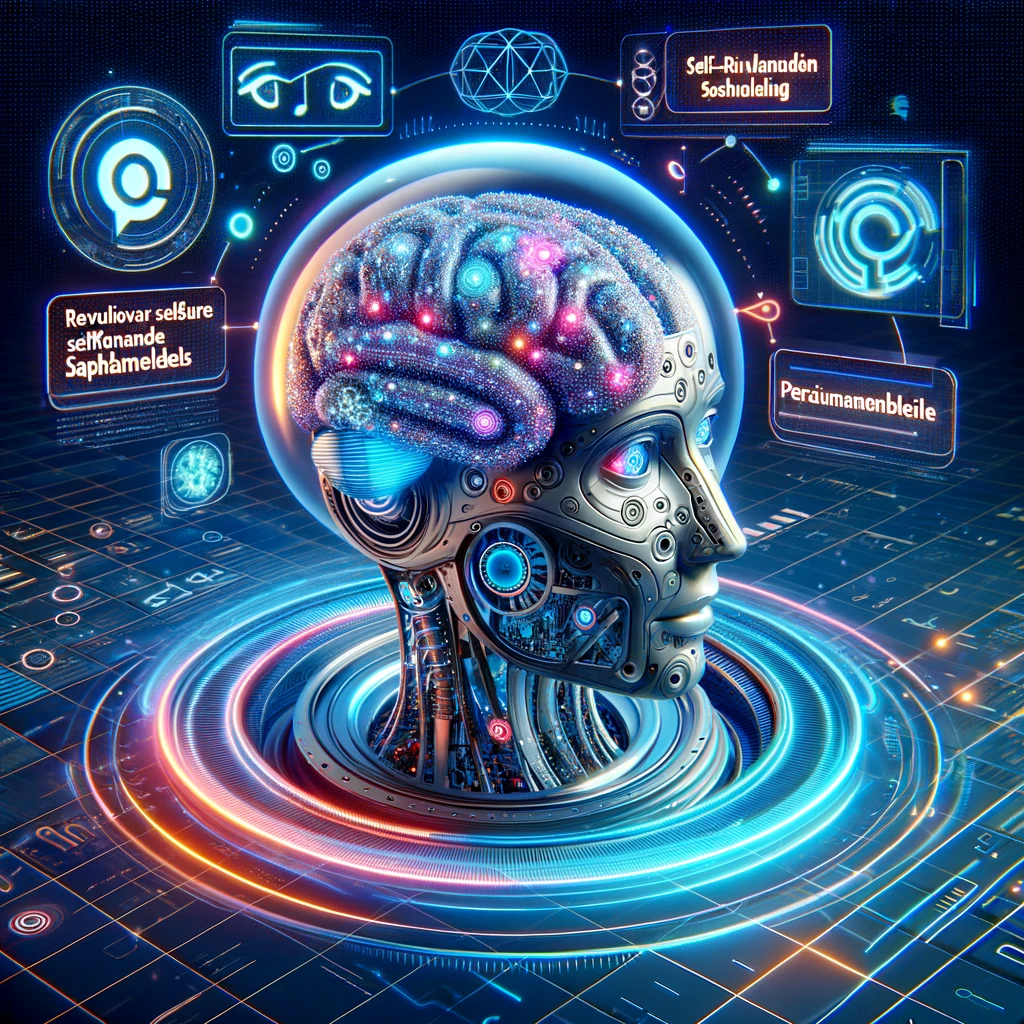
Meta and New York University present the “Self-Rewarding Language Models”, which could herald a new era in AI research. These models are able to reward themselves during training and thereby continuously improve their performance, complementing or even replacing conventional methods that rely on human feedback.
| Key Point | Details |
|---|---|
| Developers | Meta and New York University |
| Concept | “Self-rewarding language models that generate their own rewards during training |
| Innovation | Overcoming the limitations of human feedback through self-assessment and self-improvement |
| First results | Llama 2 70B shows improved performance as a self-rewarding model |
| Future research | Further research on performance and susceptibility to reward hacking |
Link: https://the-decoder.de/metas-self-rewarding-language-models-sollen-menschliches-feedback-ueberfluessig-machen/
WHO defines new AI standards in medicine!

The World Health Organization (WHO) has unveiled comprehensive new guidelines for the use of large multimodal AI models (LMMs) in healthcare. These guidelines contain over 40 recommendations for governments, technology companies and healthcare providers to guide and optimize the use of LMMs and emphasize the importance of transparent information and guidance for the design and use of these models.
| Key Point | Key Point Details |
|---|---|
| Publisher | World Health Organization (WHO) |
| Aim of the guidelines | To ensure the appropriate use of large multimodal AI models in healthcare |
| Areas of application | Diagnosis, patient care, administration, education, research and drug development |
| Potential risks | Incorrect, inaccurate, biased or incomplete information |
| Recommendations | Involvement of different stakeholders in the development and implementation of the models |
Link: https://the-decoder.de/who-stellt-neue-ki-leitlinien-fuer-grosse-multimodale-modelle-in-der-medizin-vor/
Google’s AI future plan: Developing the world’s most advanced AI by 2024!
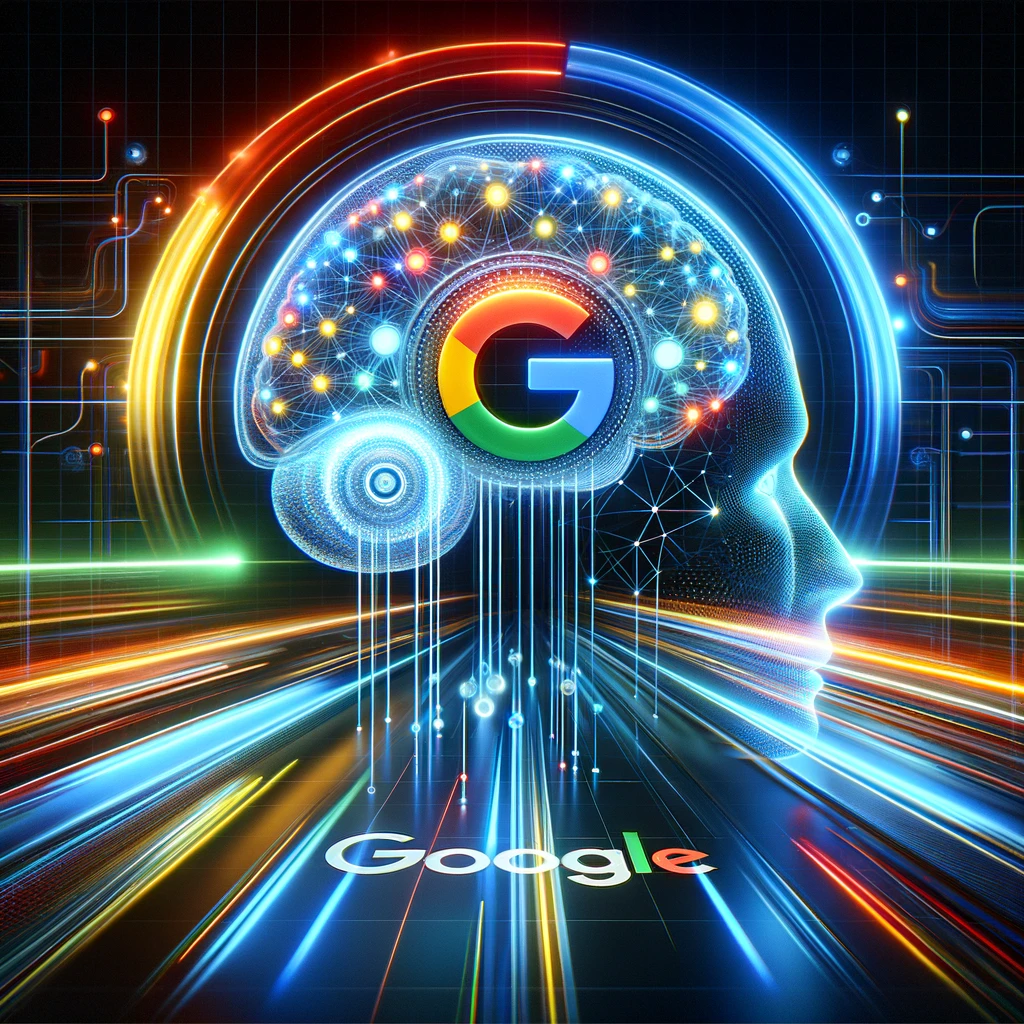
Google has set itself the ambitious goal of developing the world’s most advanced, safe and responsible AI by 2024. This includes integrating AI into existing products such as business apps and Pixel smartphones, as well as developing new, standalone AI products to stay at the forefront of technological innovation.
| Key Point | Key details |
|---|---|
| Google’s objective | Develop the world’s most advanced AI by 2024 |
| Integration plans | Integrate AI into existing products such as business apps and Pixel smartphones |
| The challenges | Lack of a standalone AI product similar to ChatGPT |
| Competitive situation | Lagging behind Microsoft and OpenAI in AI development and cloud business |
Link: https://the-decoder.de/google-will-2024-die-fortschrittlichste-ki-der-welt-entwickeln/
OpenAI’s path to GPT-4 successor: Cooperation with TSMC for groundbreaking AI chips!
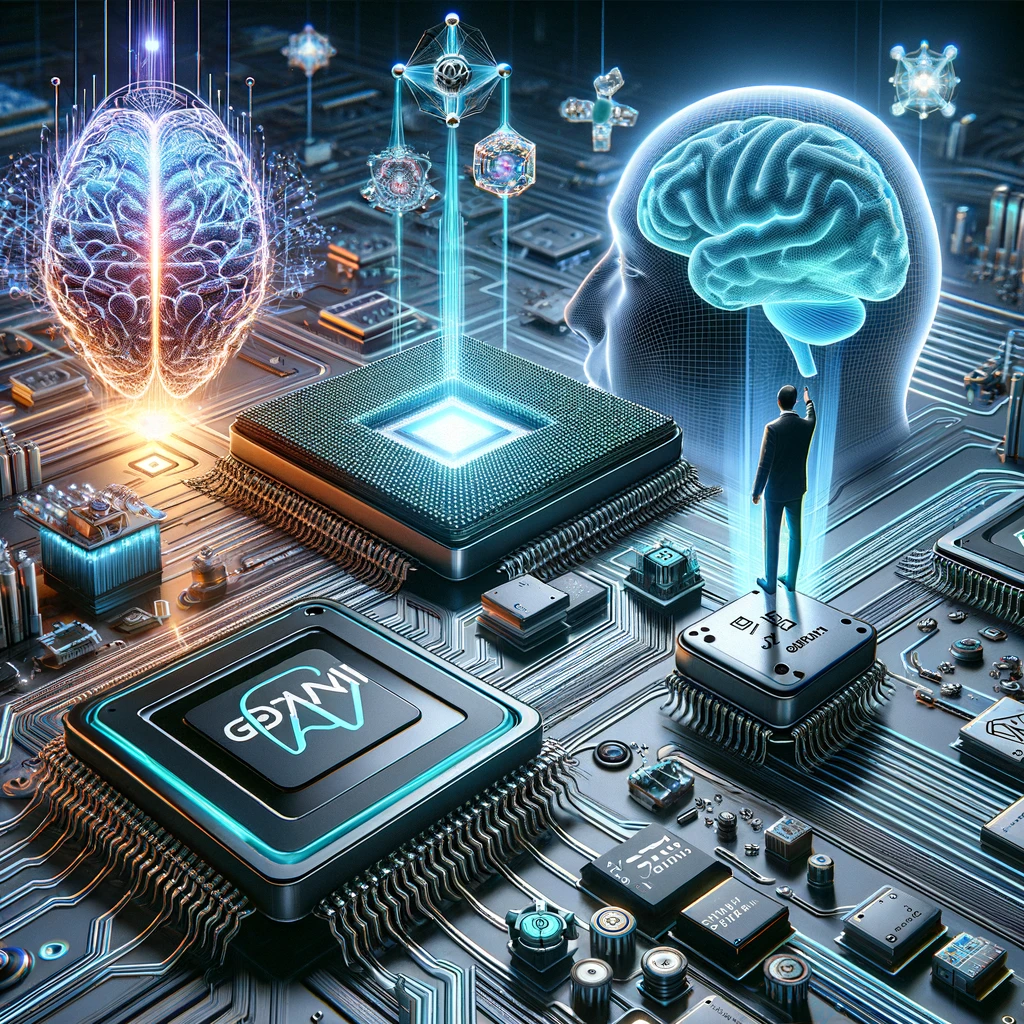
OpenAI CEO Sam Altman plans to develop a new generation of AI chips to reduce reliance on Nvidia and drive the next generation of AI models, including a “major upgrade” to GPT-4. The talks with Taiwan Semiconductor Manufacturing Co (TSMC) are aimed at building a global network of semiconductor factories to meet the growing demand for AI chips.
| Key Point | Key details |
|---|---|
| Goal of OpenAI | Development of a “major upgrade” for GPT-4 and new AI chips |
| Partnership with TSMC | Talks about cooperation in chip manufacturing |
| Strategy | Reduce dependence on Nvidia and build a global network of chip factories |
Link: https://the-decoder.de/gpt-4-nachfolger-soll-grosses-upgrade-werden-openai-ceo-spricht-mit-tsmc-ueber-ki-chips/
Nightshade and Glaze: Artist protection in the age of AI!

Artists use Nightshade and Glaze to protect their work from AI image generators. Nightshade inserts manipulated pixels into images to fool and sabotage AI models, while Glaze inserts invisible pixels that fool AI systems into believing false styles.
| Key Point | Key Point Details |
|---|---|
| Tools | Nightshade and Glaze |
| Goal | Protection of artworks from AI image generators |
| How it works | Inserting manipulated pixels to deceive AI models |
| Recommendation | Combined use of both tools for optimal protection |
| Availability | For Windows GPU/CPU and MacOS |
Link: https://the-decoder.de/ki-gift-app-nightshade-kuenstler-wehren-sich-gegen-ki-bildgeneratoren/
ASU integrates ChatGPT: A new era of learning with AI!
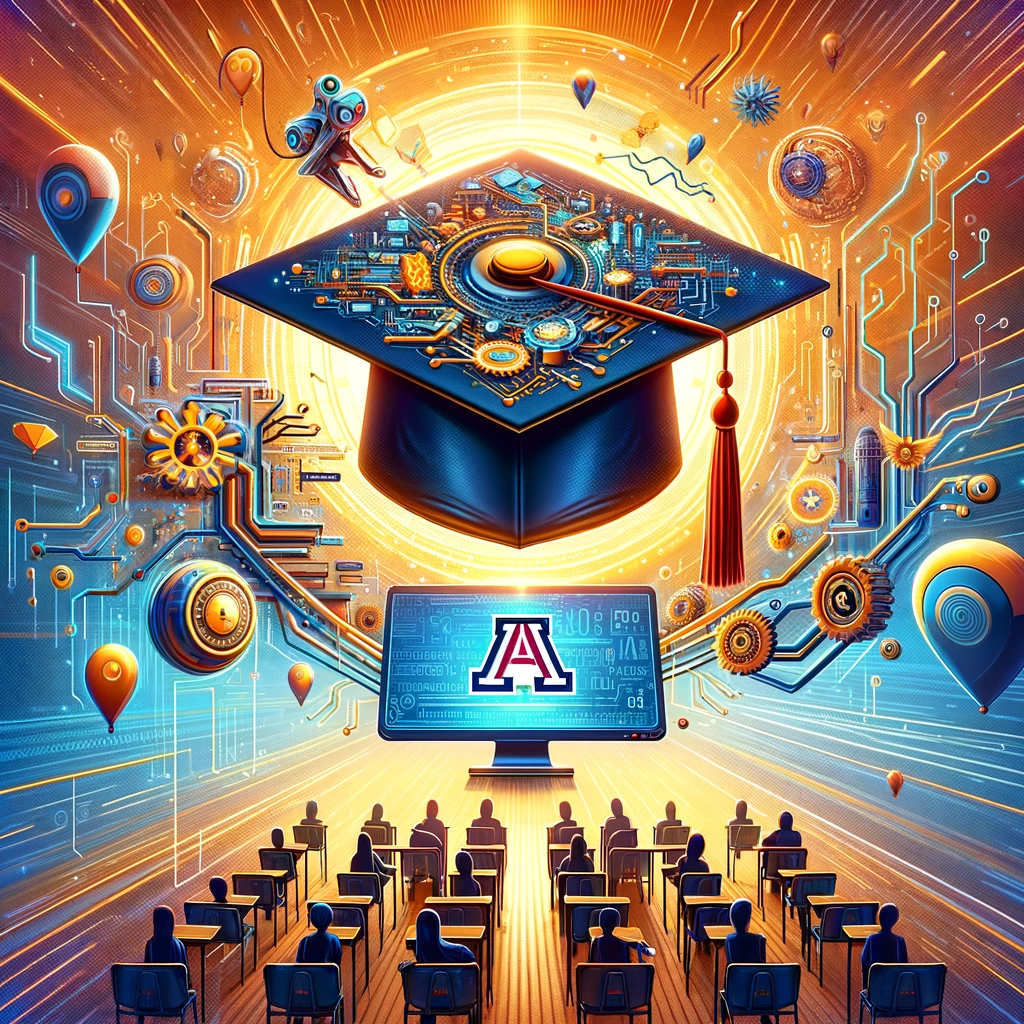
Arizona State University (ASU) has partnered with OpenAI to integrate ChatGPT into its courses. This is intended to improve student success, promote innovative research and streamline organizational processes, with the university accepting project proposals from faculty and students starting in February.
| Key Point | Details |
|---|---|
| Initiative | Integration of ChatGPT into courses |
| Goals | Improvement of academic success, promotion of research, rationalization of organizational processes |
| Application | Use in composition and journalism courses, promotion of critical thinking |
| Collaboration | First cooperation between OpenAI and an educational institution |
Link: https://the-decoder.de/arizona-state-university-akkreditiert-chatgpt-um-lernen-mit-ki-neu-zu-erfinden/
Meta’s LLaMA-3: The next step towards general artificial intelligence!

Meta is working on the development of the LLaMA-3 model, an advanced step towards general artificial intelligence (AGI). By training the LLaMA-3 model, Meta aims to create an AI that can mimic a broader range of human capabilities and find application in different domains.
| Key Point | Key Details |
|---|---|
| Development and | Training of the LLaMA-3 model |
| Goal | Creation of a general artificial intelligence (AGI) |
| Potential | Imitation of a broad spectrum of human abilities |
Link: https://the-decoder.de/meta-trainiert-llama-3-und-will-allgemeine-kuenstliche-intelligenz-entwickeln/
RunwayML’s Multi Motion Brush: A new era of image animation with AI!
RunwayML has enhanced its AI video generator software with a new tool called Multi Motion Brush, which can animate up to five independent motions within an image. This innovative tool gives users more creative control when creating and editing AI videos by allowing individual movements for separate areas of the image.
| Key Point | Key Point Details |
|---|---|
| Product Details | Multi Motion Brush from RunwayML |
| Function | Animation of up to five objects in one image |
| The technology | AI-based motion generation |
| Target group | Creative professionals and video producers |
| Application | Increased creative control in AI video editing |
Link: https://the-decoder.de/multi-motion-brush-von-runwayml-animiert-bis-zu-fuenf-objekte-in-einem-bild-mit-ki/
AlphaGeometry by Deepmind: A milestone towards General Artificial Intelligence!
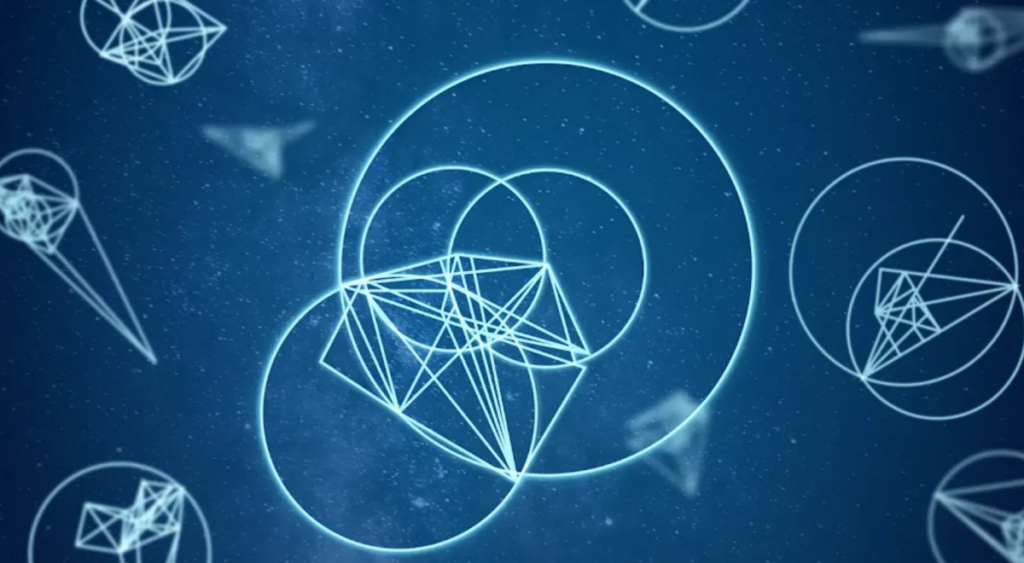
Deepmind introduces AlphaGeometry, a groundbreaking AI system that almost reaches the level of the world’s best students in geometry. This neuro-symbolic system, which combines language acquisition and deductive reasoning, has correctly answered 25 out of 30 questions at the International Mathematical Olympiad and is seen as an important step in the development of General Artificial Intelligence.
| Key Point | Key Point Details |
|---|---|
| Product details | AlphaGeometry from Google Deepmind |
| Performance | Solving 25 out of 30 geometry problems of the International Mathematical Olympiad |
| Technology | Neuro-symbolic system, combines language acquisition and deductive reasoning |
| Future outlook | Hope for new possibilities in math, science and AI |
Link: https://the-decoder.de/deepminds-alphageometry-loest-komplexe-geometrieprobleme-und-ist-ein-wichtiger-schritt-zu-agi/
Google sets AI milestones: New search functions and integration in Samsung’s S24!
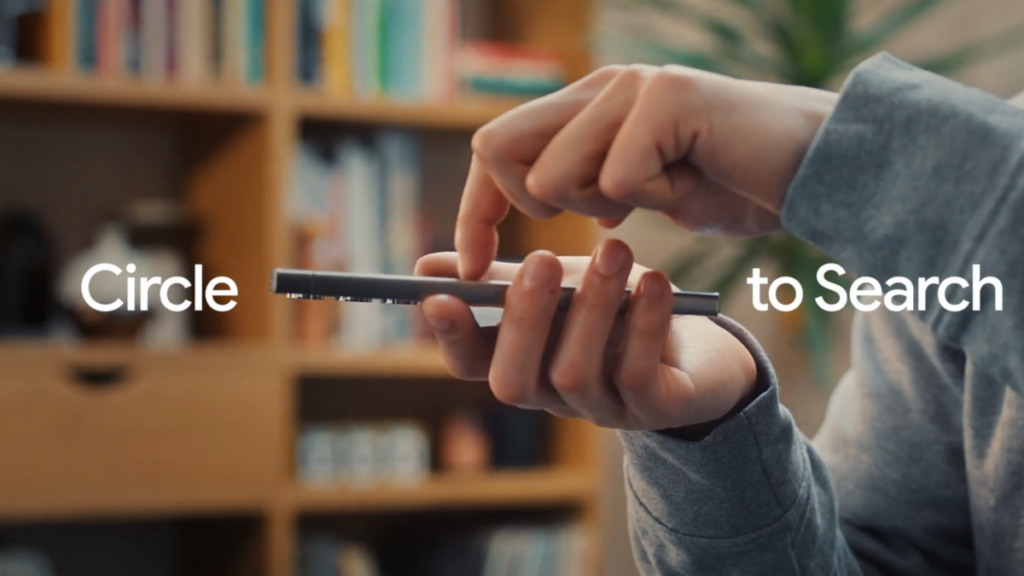
Google has announced major AI updates to its search feature and plans to integrate the Gemini model into Samsung’s new S24 smartphone. The updates include the “Circle to Search” feature, which allows users to search content directly on their Android phone, as well as AI-powered multi-search that goes beyond visual matches.
| Key Point | Key Point Details |
|---|---|
| New features | Circle to Search and AI-powered multi-search |
| Integration in Samsung S24 | Introduction of Google’s Gemini models |
| Goal | Improve user experience and expand AI functionality |
Link: https://the-decoder.de/google-kuendigt-ki-updates-fuer-die-suche-und-gemini-fuer-samsungs-neues-s24-an/
OpenAI and the US military: Together for advanced cybersecurity!
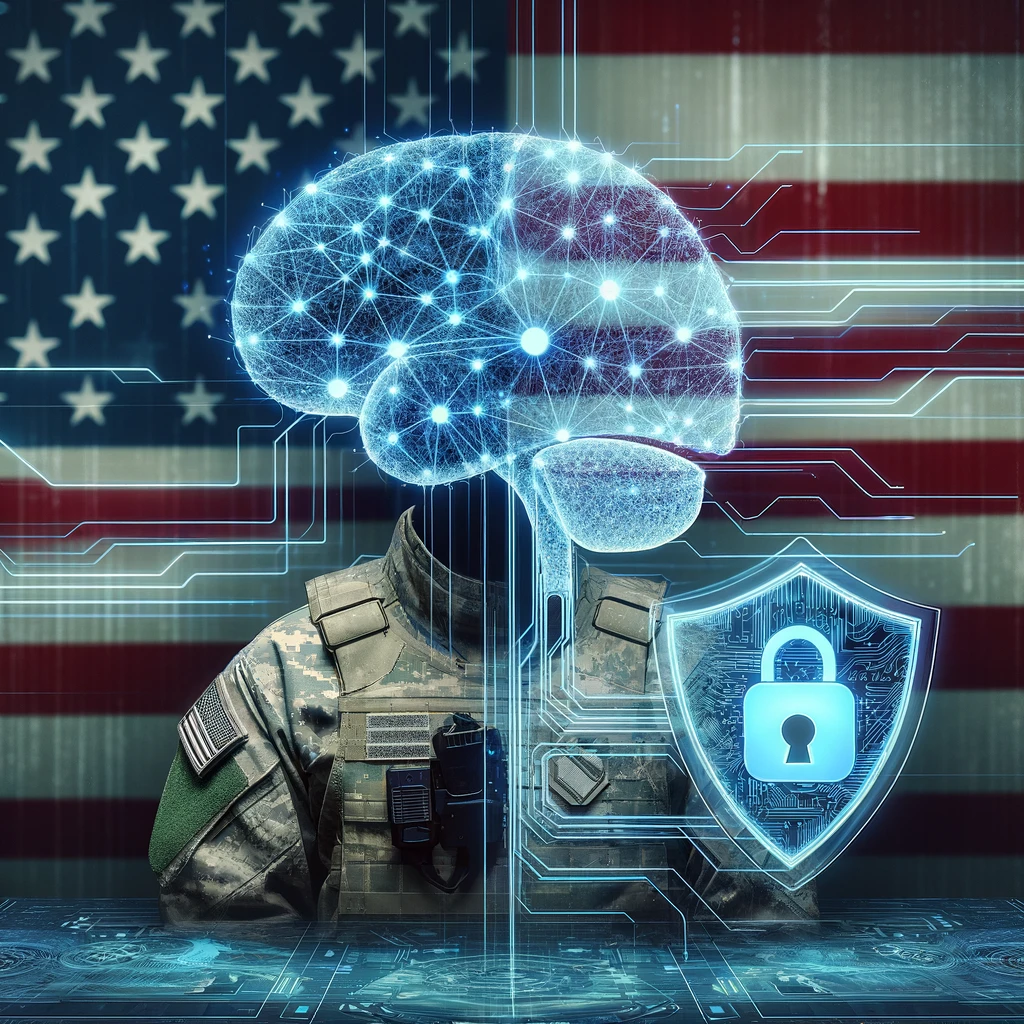
OpenAI is working with the US military on several cybersecurity projects, including the development of open source software. After OpenAI recently removed a clause from its terms of service that prohibited the use of its AI for military and warfare applications, the company is opening up to collaborations in defense technology.
| Key Point | Details |
|---|---|
| Cooperation | OpenAI works with the Pentagon on cybersecurity projects |
| Projects | Development of open source software for cybersecurity |
| Change in the terms of use | Removal of the ban on military use of OpenAI’s AI |
Link: https:// the-decoder.de/openai-arbeitet-mit-us-militaer-an-cybersecurity-projekten/
Microsoft’s Copilot Pro: AI revolution for companies and private users!
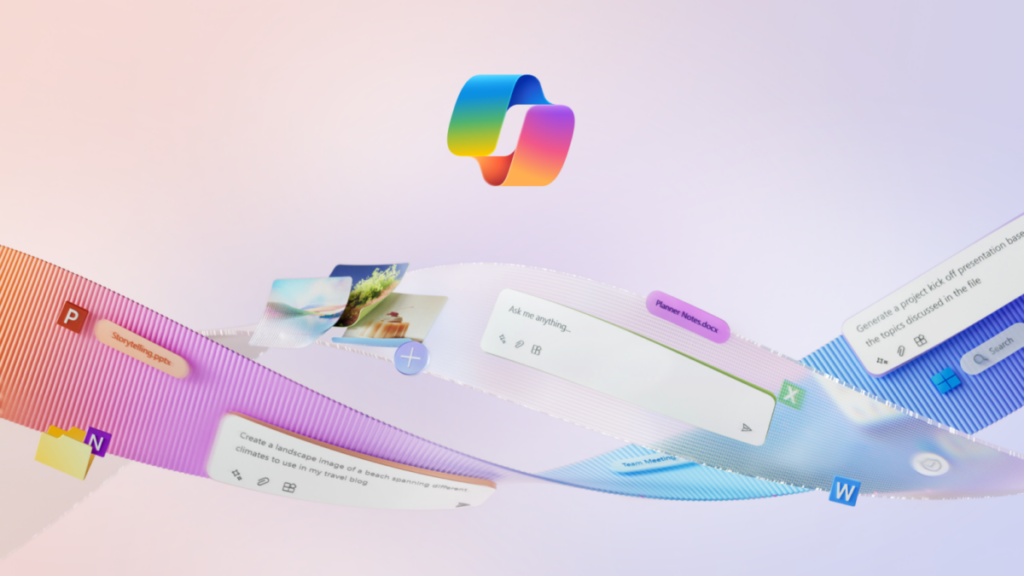
Microsoft has announced Copilot Pro, a subscription service that integrates AI capabilities into Office applications such as Word, Excel and PowerPoint, making it easier for both small businesses and home users to access advanced AI capabilities. In addition to creating PowerPoint presentations and rephrasing paragraphs in Word, Copilot Pro provides priority access to the latest OpenAI models and enables the creation of custom Copilot GPTs.
| Key Point | Key Point Details |
|---|---|
| Product Details | Copilot Pro from Microsoft |
| Features | AI functions in Office applications, user-defined Copilot GPTs |
| Target group | Small businesses and home users |
| Price | 22 euros per license for Copilot Pro, 30 US dollars per user/month for Copilot for Microsoft 365 |
| Availability | Web, Windows or Mac, mobile devices |
Link: https://the-decoder.de/microsoft-kuendigt-copilot-pro-an-und-erleichtert-unternehmen-ki-einstieg/
Sam Altman reveals the most important development areas of the GPT-5
In a recent podcast with Bill Gates, Sam Altman talked about the key development areas of GPT-5, which herald a new era of AI and offer a glimpse into the future of personalized and versatile artificial intelligence.
The most important points:
- Resilience and growth at OpenAI : Following the brief resignation of Sam Altman as CEO, OpenAI has demonstrated resilience and growth, with increased team productivity and optimism.
- Progress in AI understanding: The focus is on improving the understanding of AI models, particularly in terms of their interpretability, which could significantly increase their efficiency and accuracy.
- Future AI milestones : Key future advances in AI include multimodality (integration of speech, images and video), improved reasoning, reliability and personalization. AI is expected to take on more complex tasks and be linked to personal data such as emails and calendars.
- Need for global AI regulation: There is a discussion about the need for a global regulatory framework for AI, similar to the regulation of nuclear energy, to address the potential societal and geopolitical impacts.
- The impact of AI on work and society : AI is expected to reshape various sectors such as programming, healthcare and education and change the nature of work, requiring society to adapt quickly.
- Robotics and blue-collar jobs : The integration of AI with robotics is seen as a potential game changer for blue-collar jobs, depending on advances in hardware.
Link: https://www.youtube.com/watch?v=PkXELH6Y2lM
Mixtral 8x7B Instruct: AI innovation for creative text generation on OctoAI!
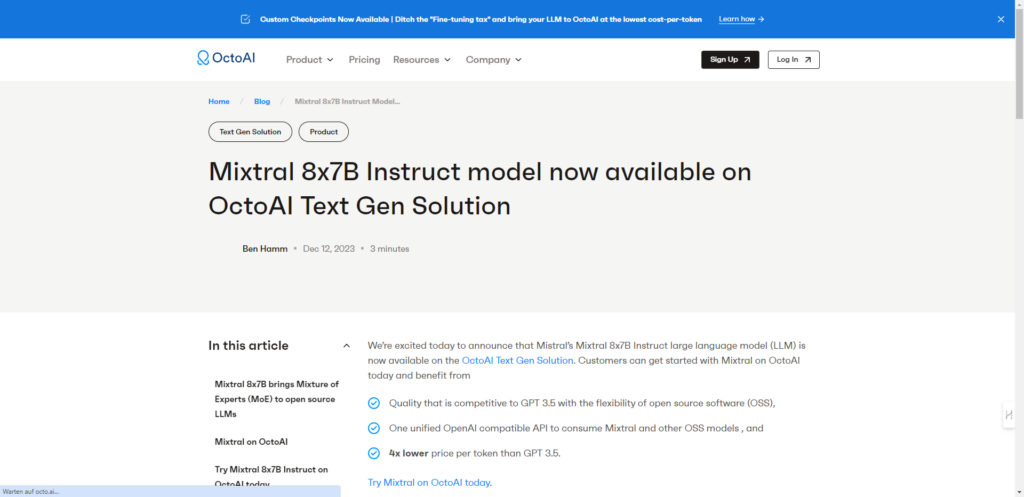
OctoAI announces the availability of the Mixtral 8x7B Instruct model, a state-of-the-art AI text generation tool that delivers GPT-3.5-level quality while maintaining the flexibility of open software. With Mixtral 8x7B on OctoAI, users can benefit from a unified OpenAI-compatible API and reduce the cost per token by four times compared to GPT-3.5.
| Key Point | Key Point Details |
|---|---|
| Product details | Mixtral 8x7B Instruct model on OctoAI |
| Performance | Quality comparable to GPT-3.5, but at a quarter of the cost |
| Technology | Sparse Mixture of Experts (MoE) architecture |
| Target group | Developers and companies looking for high-quality AI text generation |
| Integration | Easy to use thanks to standardized API, compatibility with OpenAI |
Link: https://octo.ai/blog/mixtral-8x7b-instruct-model-now-available-on-octoai-text-gen-solution/
OpenChat: Progress in open source language models despite imperfect data!
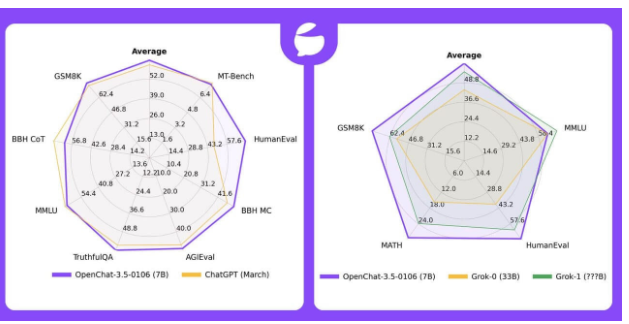
OpenChat has just introduced an advanced open source 7B LLM that outperforms both ChatGPT (as of March) and Grok-1 on several benchmarks. Key improvements: Improved training methodology, improved in-context learning capabilities, better encoding capabilities than previous models. Notwithstanding the interesting Grok comparison in the research, the fact that another open source LLM exists at the level of ChatGPT (and Grok) is significant. This is another big win for open source AI.
| Key Point | Details |
|---|---|
| Project | OpenChat |
| Goal | Improvement of open source language models despite imperfect data |
| Technology | Transformer, large language models |
| Languages | Python (52.8%), Jupyter Notebook (47.2%) |
| License | Apache 2.0 |
| Contribution | Progress in the development of language models, even with the challenges of imperfect data |
Link: https://github.com/imoneoi/openchat
Tesla`s Optimus folds T-shirts
The Tesla robot Optimus was recently filmed folding a shirt – another step towards automated human tasks at home.
Optimus folds a shirt pic.twitter.com/3F5o3jVLq1
– Elon Musk (@elonmusk) January 15, 2024

